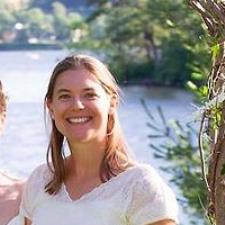 Post Classifieds
Post Classifieds
Major and minor cuts ahead
After 100 years of success, Lyndon State College is heading down a path of change.
President Carol Moore addressed a room full of faculty, staff, and students this past Tuesday with the annual State of the College address. Being the centennial, Moore aimed to focus on the successes of the past century as well as ways to make the next 100 years just as successful.
Moore's ideas and suggestions would revolve around the concept of reinventing Lyndon. "I'm not using the word ‘reinvent' as a euphemism for lay-offs," she assured the crowd. "Rather, I am asking that we rethink in every way in which we do business."
Moore believes there are three things the college needs to remember and build upon. She stated that Lyndon is a professional college, that Lyndon is an access college that provides opportunity, and that Lyndon's cornerstone is experiential learning. Asking for the support of faculty and staff, Moore points out that there is a strategy in place based off of suggestions from the NEASC team visit last semester, including a deadline of what was then 2 years (translating into about 18 months from now).
"Lyndon is a great college. Let me say that again; Lyndon is a great college," said Moore in preparation for covering some hot topics and areas that need improvement.
First, Moore outlined external factors that influence both challenges and opportunities that Lyndon is and will be facing in the future. The economy and recession that has clearly effected the world of higher education was the first illustration Moore provided, reminding the group of students whose parents have lost jobs and are not only struggling to put a child through college, but also food on the table. Second, the fact that colleges and universities across the country are being held under "incredible pressure," explained Moore, is another reason that costs of higher education is outpacing inflation rates. "We have to prove we're worth the money," said Moore. State appropriations, the boom of online learning, demographics, and demands for a well-paying job after graduating are all contributing factors to the challenges Lyndon face according to Moore.
With a slideshow of pictures in the background, illustrating the evolution of buildings, landmarks, and activities at Lyndon, Moore explained the internal challenges Lyndon is facing.
A high percentage of students at Lyndon are enrolled in professional programs, and these programs are very equipment-intensive. There is a high cost to maintain the most popular majors. Areas that have less involvement are under scrutiny to decide whether they will continue being offered at Lyndon. In three of the four offered Secondary Education programs, only six people have graduated from those programs since the year 2006.
Donna Dalton, Dean of Academic and Student Affairs has been charged by Moore to examine all the programs and find which are benefiting Lyndon in a more financially sustainable way.
What are the solutions to these problems? Moore has initiated seven tasks force, each charged with a specific goal of reinventing Lyndon in hopes to reach the set 18-month deadline. Guidelines for these groups including coming to meetings prepared, questions and opinions readily available, as well as thoughtful responses.
"I fully recognize the look in people's eyes when I appear unexpectedly at their door," said Moore. "Sorry, but I'm going to continue." She knows that there will be tension in the air because of possible changes, but she says she still has to ask the questions in order to get things done.
Moore believes student recruitment and retention is on everyone's shoulders, pointing out the importance of the custodial and maintenance staff keeping the buildings and residence halls in clean and working conditions. She also put emphasis on updated and neat bulletin boards, an active student activities center, and asks that faculty and staff become more involved in the overall process of recruitment.
Finishing up, Moore admitted that she can "see where we need to be in 19 months; however, I am not 100% sure how we are going to get there." Challenging the audience to give more even though they may feel as though there is nothing more to give, Moore opened it up for questions
The first hand up was Professor Beth Norris from the Music Business and Industry department. "Thank you for being honest with us," acknowledged Norris. "But why did the NEASC team say ‘two years?' Is that based on the college's problems or the economy's problems?" Moore responded saying that it is because of the challenges in funding that this college is facing, specifically our curriculum offering. Still skeptical, Director of Career Services Linda Wacholder challenged the validity of the two year deadline asking if who came up with the number, and if it would be more beneficial to implement a less-strict deadline, providing "wiggle room" and thus less anxiety. "I wouldn't say it if it wasn't true," Moore said, referring to the deadline. She also explained that a member of the NEASC team did a financial analysis of Lyndon and was the one who determined the two-year deadline. Math Professor Jim Bozeman, in attempt to clarify Wacholder's question, proclaimed to the group: "we're not going to go off a cliff in 18 months." Moore replied "that's your opinion, not mine."
Senior Electronic Journalism Arts major Tim Cappalli, who is also the student trustee of the VSC had something to say in the matter. "We have to have a deadline. It's human nature for people to put things off. I disagree with the cliff analogy; I don't understand why the deadline is a problem."
Wacholderalso showed concern about students who were in the majors that will be closed due to low enrollment. "We made a commitment to those students," Moore explained, assuring the crowd that any student currently in a major that will be closed will have all the courses necessary to finish that degree program. The difference, now, is that Lyndon will no longer be enrolling new students in those particular programs. Moore also announced some new degree programs being added that will be more attractive to students, Sports Management and Criminal Justice, when Social Sciences Professor Janet Bennion asked how limiting class choices might be a disadvantage for Lyndon's budget. "We have to grow selectively," said Moore. Money will be reallocated to help pay for these new programs. "From what, though? Liberal Studies?" asked Bennion. "What a sacrifice."
"If we don't meet the deadline, what is going to happen?" questioned Norris.
"We will keep cutting," answered Moore. "But eventually there will be nothing left to cut."
Get Top Stories Delivered Weekly
Recent The Critic News Articles
Discuss This Article
GET TOP STORIES DELIVERED WEEKLY
FOLLOW OUR NEWSPAPER
LATEST THE CRITIC NEWS
RECENT THE CRITIC CLASSIFIEDS
OUTSIDE THE LINES
- Help Protect Your Family Against Respiratory Illness...
- Do’s And Don’ts of D-I-Y
- Riders: Don’t Put Your Powersports Passions on Hold
- Volunteer Finds Community in Military and Veteran...
- Take Charge of Tomorrow: Preventing Diabetes Health...
- Effortless Holiday Hosting: Simple Tips to Keep Your...
- There’s More To Vision Health Than Meets the Eye
- Medications and Wellness Essentials Delivered to Your...
- Understanding Spam—And How To Stop It
- 1 in 5 Vehicles on the Road Has an Open Recall—Yours C...
FROM AROUND THE WEB
- Tenth Anniversary of National Apprenticeship Week...
- BookTrib’s Bites: Four Exciting Reads to Sink Your T...
- Blue Star Families' 'Campaign for Inclusion' Research...
- Gaps Persist in American Tech Competitiveness
- Shoppers Embrace the Holiday Season with Cautious Optimism
- Radiation Therapists Play a Critical Role in Our Lives
- BookTrib's Bites: Four Enthralling Autumn Reads
- Trump's Flawed Tariff Proposal
- How Artificial Intelligence Intersects with Energy
- 6 Reasons Fiberglass is the Pool Material of Choice for...



